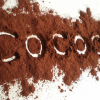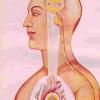Chemical drink breathes life into damaged hearts
After drinking a chemical dissolved in water, mice with damaged hearts turn from couch potatoes into treadmill tearaways, researchers say. The finding raises hopes that the same substance can invigorate patients weakened from heart attacks by increasing the supply of oxygen to damaged cardiac muscle.
- 22:00 09 February 2009 by Andy Coghlan
Designed to make haemoglobin release more of its oxygen than normal, the drug, myo-inositol trispyrophosphate (ITPP) boosted exercise levels in the ailing mice by 35% when given dissolved in water. When given by injection into the abdomen, exercise levels rose a massive 60%.
http://www.newscient...ged-hearts.html
Enhanced exercise capacity in mice with severe heart failure treated with an allosteric effector of hemoglobin, myo-inositol trispyrophosphate
<h1 id="article-title-1"></h1>
Abstract
A major determinant of maximal exercise capacity is the delivery of oxygen to exercising muscles. myo-Inositol trispyrophosphate (ITPP) is a recently identified membrane-permeant molecule that causes allosteric regulation of Hb oxygen binding affinity. In normal mice, i.p. administration of ITPP (0.5–3 g/kg) caused a dose-related increase in the oxygen tension at which Hb is 50% saturated (p50), with a maximal increase of 31%. In parallel experiments, ITPP caused a dose-related increase in maximal exercise capacity, with a maximal increase of 57 ± 13% (P = 0.002). In transgenic mice with severe heart failure caused by cardiac-specific overexpression of Gαq, i.p. ITPP increased exercise capacity, with a maximal increase of 63 ± 7% (P = 0.005). Oral administration of ITPP in drinking water increased Hb p50 and maximal exercise capacity (+34 ± 10%; P < 0.002) in normal and failing mice. Consistent with increased tissue oxygen availability, ITPP decreased hypoxia inducible factor-1α mRNA expression in myocardium. It had no effect on myocardial contractility in isolated mouse cardiac myocytes and did not affect arterial blood pressure in vivo in mice. Thus, ITPP decreases the oxygen binding affinity of Hb, increases tissue oxygen delivery, and increases maximal exercise capacity in normal mice and mice with severe heart failure. ITPP is thus an attractive candidate for the therapy of patients with reduced exercise capacity caused by heart failure.
http://www.pnas.org/...6/1926.abstract
Also, M&M has a thread on it as well.
http://www.mindandmu...showtopic=37088
























































